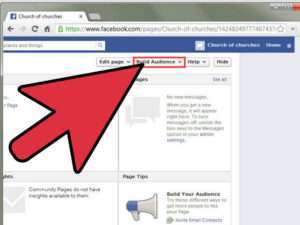A Facebook page is an essential tool for any small business. It gives you an opportunity to connect with customers and followers on a personal level, as well as share your latest news and happenings with the community. If you’re planning on starting a church, or just want to beef up your Facebook presence, this blog post is for you. We’ll walk you through the basics of setting up a Facebook page for your church, from choosing a name to drafting your policy. By following these simple steps, you’ll be well on your way to building a thriving congregation.
Setting Up Your Church Facebook Page
When creating your church’s Facebook page, keep these tips in mind:
-Pick a name for your page that is relevant to your congregation. For example, if you’re a Catholic church, consider naming your page “Catholic Church of [town name]” instead of “Saint John’s Catholic Church.”
-Write a brief bio that tells people a little about your church and what it offers.
-Upload pictures of important church artifacts, services and leaders.
-Share messages from ministers or other leaders on relevant topics.
-Link to information about upcoming events and services.
-Make sure to add a “Like” button for friends and followers to easily join the conversation!
Creating A Church Facebook Page Strategy
When creating a church Facebook page, there are a few things to keep in mind. First, make sure to select the right platform for your church. Churches can use either the official Facebook page or a personal account. Second, think about what content will be most useful to your followers and post it regularly. Third, make sure to create engaging images and posts that draw people in. Finally, keep an eye on your page’s analytics so you can improve it as needed.
How To Engage With Your Community On Your Church Facebook Page
There are many ways to engage with your community on your church Facebook page. Below are some ideas: 1. Share stories and photos of parishioners and events that have taken place in the past. 2. Use the “Talk” feature to invite members of your congregation to participate in friendly discussions about theological topics or current events. 3. Engage with members through quizzes, polls, and other interactive features. 4. Promote parish events and offerings, as well as connect with nearby churches for fellowship and support. 5. Connect with your church’s blog to share thoughts, insights, and prayers from the pews. 6. Connect with local ministries in your parish community who can offer resources or services that might be beneficial for you and your congregation. 7. Encourage members to share their own reflections, articles, photographs, or videos about life as a Catholic in today’s world. 8. Connect with individuals from all walks of life through Facebook groups tailored specifically for Catholics!
Tips for Growing Your Church Facebook Page
1. Decide what your church’s focus should be.
Your church’s Facebook page should reflect the overall focus of your congregation – whether that’s preaching the gospel, ministering to the community, or evangelizing. Once you have determined the focus of your church, make sure to promote this throughout all aspects of your Facebook page content.
2. Establish a brand for your church.
Your church’s Facebook page should be clearly branded with your congregation’s name and logo – both on the page header and throughout all content. This will help potential members identify your church as one they may want to connect with on social media. Additionally, be sure to regularly post images and videos related to your congregation’s focus that can help build brand recognition.
3. Keep things fresh and interesting for followers.
Your followers will appreciate regular updates that are relevant to their interests and keep them entertained with creative visuals and compelling stories. Make use of interactive features available on Facebook such as polls, quizzes, and groups to engage followers in conversation about key topics related to Christianity. Additionally, consider hosting weekly or monthly blog posts on your Church Facebook Page as another way to provide engaging content beyond just photos and videos.
Conclusion
Creating a church Facebook page can be an incredibly beneficial way for your congregation to stay connected and informed about what’s happening at your church. Not only will your Facebook page help you connect with potential members, but it can also provide a space for your congregation to share their testimonies and find support as they journey through life. If you’re interested in establishing your own church Facebook page, check out our guide on how to create a church Facebook page.

